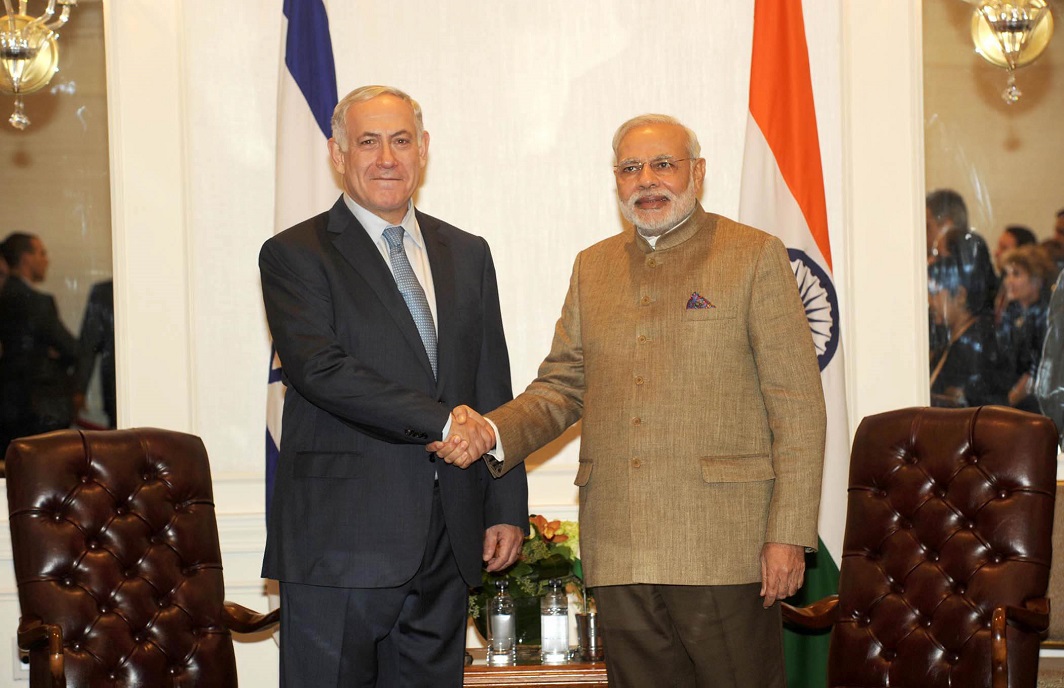
Can India use the Security Council’s vote against Jewish settlements to advantage?
By Sujit Bhar
US President-elect Donald Trump takes oath of office on January 20, 2017. Less than a month before he does, the US, still under the Barack Obama administration, dealt a huge blow to Israel’s position vis-à-vis settlements in the West Bank area.
On December 23, the United Nations Security Council voted in favour of a resolution demanding the halt of further settlement activity by Israel on occupied Palestinian territory. The extraordinary thing about this Security Council vote was the abstention of the United States.
This is the last spanner that Obama has put in Trump’s works. The proponents of this resolution, put forward to vote at the 15-member council, were interesting countries: New Zealand, Malaysia, Venezuela and Senegal. Egypt, who had initially shown some interest, had quietly withdrawn under pressure from Israel and Trump.
What happened was a clear disregard of an unofficial call from Trump (and Israel) for the US to veto the measure.
Israeli Prime Minister Benjamin Netanyahu was livid, calling the vote “shameful” and summoned US Ambassador Daniel Shapiro for a talk on Sunday. What was discussed wasn’t out for the media, but it certainly was less than cordial, the Ambassador knowing fully well that his position might not be tenable with the arrival of a new Commander-in-Chief in the UIS.
The Security Council resolution is an important document for historians to refer to, but Netanyahu has no intentions of adhering to it. He had reported told his cabinet that the resolution was “reckless and destructive,” while mentioning with no ambiguity that the US and Israel have always agreed that the Security Council is no place to resolve the settlement issue.
On December 23, the United Nations Security Council voted in favour of a resolution demanding the halt of further settlement activity by Israel on occupied Palestinian territory. The extraordinary thing about this Security Council vote was the abstention of the United States.
Meanwhile, chief Palestinian negotiator Saeb Erekat commented to Reuters news agency: “This is a day of victory for international law, a victory for civilised language and negotiation and a total rejection of extremist forces in Israel. The international community has told the people of Israel that the way to security and peace is not going to be done through occupation … but rather through peace, ending the occupation and establishing a Palestinian state to live side by side with the state of Israel on the 1967 line.”
The issue, if anything, is not a watershed one. This resolution will be the last thing that Trump would be interested in abiding by, and going by the history of the UN, there is little that the organisation can do to enforce this on its biggest contributor. For Netanyahu it was the matter of pride and a legitimacy that all Israeli Prime Ministers have looked for in what has been one of the most controversial forcible real estate developments on “foreign” soil.
A statement from Netanyahu’s office has clearly said: “Israel rejects this shameful anti-Israel resolution at the UN and will not abide by its terms.”

What then? A resolution, that neither the US, nor the intended party wishes to abide by, is worth no more than the paper it has been written on. Has a seat on the Security Council become purely ornamental?
Let us look at this entire issue from India’s point of view. India had started off as a somewhat independent observer in the entire Jewish issue. This was prior to the 1967 (Arab-Israeli) war.
The 1947 partitioning plan of Palestine did not find favour with Indian leaders and India, itself just independent, voted against Israel’s admission to the UN in 1949. India’s recognition of the new state came a year later.
The positions taken were sharp. In an editorial in Harijan, a then widely circulated Indian weekly, Mahatma Gandhi had written on November 11, 1938: “My sympathies are with the Jews… but my sympathy does not blind me to the requirements of justice. The cry for the national home for the Jews does not make much appeal to me… Why should they not, like other peoples of the earth, make that country their home where they are born and where they earn their livelihood? Surely it would be a crime against humanity to reduce the proud Arabs so that Palestine can be restored to the Jews partly or wholly as their national home.”
Then, in 1954, Prime Minister Jawaharlal Nehru declared he would not “be a party to a resolution which stated that the creation of Israel was a violation of international law”.
But let us take the bull by the horns. It is known that Nehru had written a letter to American Zionist journalist Frances Gunther, saying he was happy with the “general Jewish behaviour in Palestine”.
India had tilted way towards the Palestinian cause and it was for all to see. With Yasser Arafat’s arrival in Delhi, to meet Prime Minister Indira Gandhi, India’s position was officially stamped and sealed.
That position was changing for a while, with India’s growing co-operation with Israel and in July 3, 2015 made its shift official when it abstained from a vote against Israel at the UN Human Rights Council in Geneva. This was a vote on a report which found evidence of “alleged war crimes” committed by both Israel and Hamas during the Gaza conflict in 2014.
With the BJP in power now, nobody needs to pretend and Israel is a committed friend. That, of course, is fair policy.
India has not reacted to the Security Council vote (not that it is bound to), but here are the takeaways for India.
Netanyahu’s Israel and Trump are sort of linked at the umbilical cord. The UN Security Council issue will be an irritant they will have to deal with, but the overall US-Israel picture will not change. Obama’s last-ditch efforts will be like water off a duck’s back. And this could quickly be Prime Minister Narendra Modi’s opportunity to know the unpredictable Trump in a way he would like to. After all, Modi is known to grab the smallest opportunity and turn it into a big victory for himself.
Netanyahu’s Israel and Trump are sort of linked at the umbilical cord. The UN Security Council issue will be an irritant they will have to deal with, but the overall US-Israel picture will not change. Obama’s last-ditch efforts will be like water off a duck’s back. And this could quickly be Prime Minister Narendra Modi’s opportunity to know the unpredictable Trump in a way he would like to.
The problem for India would be in supporting the settlements which, for all practical purposes are illegal, inhuman and a show of brute force and glitzy nationalism. These are issues Trump allies with, and would be a diplomatic nightmare of India.
However, India’s position being clear, there will always be a way. It is out there, and Prime Minister Modi just has to find it.
Lead picture: A teacher gives a class to Palestinian bedouin students outdoors near the Jewish settlement of Maale Adumim (seen in the background), in the West Bank village of Al-Eizariya, east of Jerusalem. Photo: UNI

